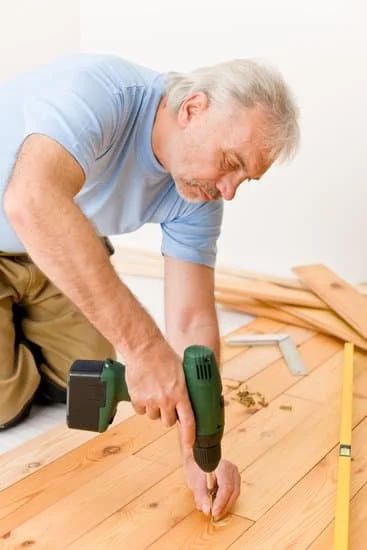Are you wondering, “How do I get a home improvement grant?” Home improvement grants can be a valuable resource for those looking to renovate or repair their homes. In this complete guide, we will walk you through the process of understanding, researching, and applying for home improvement grants. From eligibility criteria to maximizing your chances of getting a grant, this guide covers everything you need to know about accessing financial assistance for your home improvement projects.
Home improvement grants are financial aid provided by government agencies, non-profit organizations, and other sources to help homeowners make necessary upgrades to their properties. Understanding the different types of grants available, as well as the eligibility criteria for each program is essential in navigating the application process successfully.
Researching home improvement grants involves knowing where to look for available opportunities. This section will provide information on government agencies and non-profit organizations that offer home improvement grants, as well as online resources for finding additional funding options. By understanding where to find potential grants, you can better position yourself to secure the financial assistance needed for your home improvement project.
Applying for home improvement grants requires careful preparation and attention to detail. From gathering necessary documents to completing the application process, this step-by-step guide will walk you through the process of submitting a successful grant application. Additionally, tips for maximizing your chances of getting a grant will be provided to ensure that your application stands out among others.
Researching Home Improvement Grants
When it comes to finding home improvement grants, the first step is to conduct thorough research on where to look for these opportunities. Here are some key sources to consider when researching home improvement grants:
- Government agencies offering home improvement grants
- Start by checking with your local government agencies, such as housing or community development departments, to see if they offer any grant programs for home improvement. These agencies often have specific grant programs aimed at assisting low-income homeowners with necessary repairs and renovations.
- Non-profit organizations offering home improvement grants
- Many non-profit organizations, such as Habitat for Humanity or Rebuilding Together, provide assistance for home improvements through grant programs. These organizations may have specific criteria for eligibility, so be sure to thoroughly review their requirements before applying.
- Online resources for finding home improvement grants
- Utilize online databases and resources that specialize in compiling grant opportunities for homeowners. Websites like Grants.gov or the U.S. Department of Housing and Urban Development (HUD) can be valuable sources of information on available home improvement grants.
By exploring these avenues, you can gain a better understanding of the various options available for securing a home improvement grant.
Remember – it’s important to carefully review the eligibility criteria for each potential grant opportunity to ensure that you meet all requirements before proceeding with the application process. Taking the time to thoroughly research and understand the available resources will significantly increase your chances of successfully obtaining a home improvement grant.
Applying for Home Improvement Grants
When it comes to applying for home improvement grants, it’s important to follow a step-by-step guide to ensure a smooth and successful application process. Here are the key steps to take when applying for a home improvement grant:
- Research available grants: Before applying for a home improvement grant, it’s essential to research the available options. Look into government agencies, non-profit organizations, and online resources that offer home improvement grants.
- Prepare necessary documents: Gather all the necessary documents required for the grant application. This may include proof of income, property ownership documents, and any other relevant paperwork.
- Complete the application process: Once you have identified the grants you want to apply for and have all your documents in order, it’s time to complete the application process. Be sure to fill out all forms accurately and submit them within the specified deadline.
Applying for a home improvement grant can be a competitive process, so it’s important to put your best foot forward. Here are a few tips for a successful grant application:
- Highlight the impact of the project: When writing your grant application, be sure to clearly explain how the proposed home improvement project will benefit your household and community.
- Provide detailed budget information: Include a detailed budget for the project in your application. This will help grant providers understand how their funding will be used.
- Follow instructions carefully: Pay close attention to the requirements of each grant program and follow instructions carefully when completing your application. Failure to do so could result in disqualification from consideration.
By following these steps and tips, you can maximize your chances of securing a home improvement grant for your project. Remember that patience and perseverance are key when navigating the world of home improvement grants.
Meeting Eligibility Requirements
When it comes to obtaining a home improvement grant, meeting the eligibility requirements is crucial. Before applying for any grant, it is important to understand what you need to qualify. Meeting the eligibility requirements can increase your chances of being approved for a home improvement grant and make the application process smoother.
Income Requirements for Home Improvement Grants
One of the primary eligibility criteria for most home improvement grants is income. Many grant programs have specific income guidelines that applicants must meet in order to qualify.
These guidelines are put in place to ensure that the funds are allocated to those who truly need financial assistance for their home improvement projects. It is important to research and understand the income requirements of each grant program you are considering and make sure your household income falls within the specified range.
Property Requirements for Home Improvement Grants
In addition to income requirements, many home improvement grants also have specific property requirements. These may include the type of property (single-family, multi-family, etc.), age of the property, location, and other factors. Understanding these property requirements is essential before applying for a grant as they can vary widely depending on the program. Some grants may only be applicable to certain types of properties or may have restrictions based on location.
Other Eligibility Criteria to Consider
Apart from income and property requirements, there may be other eligibility criteria set by different grant programs. This could include factors such as homeownership status, residency status, credit history, and more. It is important to thoroughly research each grant program and carefully review their eligibility criteria before applying. Ensuring that you meet all necessary requirements will increase your chances of being considered for a home improvement grant.
By understanding and meeting the eligibility requirements for home improvement grants, you can position yourself as a strong candidate for receiving financial assistance for your home renovation projects. Researching each potential grant program thoroughly will provide insight into what is needed in terms of income, property ownership and additional eligibility criteria.
Home Improvement Grant Programs
Highlighting Specific Grant Programs Available
There are several home improvement grant programs available to homeowners looking to make necessary repairs or upgrades to their properties. Some of the most well-known programs include the Home Repair Program, Weatherization Assistance Program, and the Rural Home Improvement and Repair Loans/Grants. Each of these programs caters to different needs and requirements, so it’s essential to research and understand what each program offers before applying.
Describing the Scope and Limitations of Each Program
It’s important for homeowners to understand the scope and limitations of each home improvement grant program before applying. For example, some programs may have restrictions on the types of improvements that can be made, while others may have income or property value limitations. By familiarizing themselves with these details, homeowners can determine which program best fits their specific needs and circumstances.
Case Studies of Successful Home Improvement Grant Recipients
Reading about successful home improvement grant recipients can provide valuable insight for homeowners considering applying for a grant. These case studies often highlight the challenges faced by homeowners, how they navigated the application process, and how they ultimately utilized the grant funds. Understanding real-life examples can help potential applicants prepare for what to expect when seeking a home improvement grant.
By looking into these various aspects involved in navigating through prospective grants, individuals can get a better sense of what steps are needed in acquiring funding to then pursue desired housing changes to better support oneself through more favorable living conditions.
Overall this process requires tireless effort in arranging important documents as well as great diligence in working towards targeted goals set forth from one’s research efforts when seeking financial assistance tied specifically within approved parameters aimed at securing forward progress within residential improvement structures that work cohesively for all parties involved.
Tips for Maximizing Your Chances of Getting a Home Improvement Grant
When it comes to securing a home improvement grant, the process can be competitive. However, there are several tips you can follow to maximize your chances of receiving this financial assistance. Understanding the selection process is crucial in ensuring that you meet all the necessary requirements and present a compelling application. By familiarizing yourself with what grant providers are looking for, you can tailor your application to align with their expectations.
One way to improve your application is by providing a clear and detailed project proposal. Clearly outline the scope of the work to be done, including specific details about the improvements you plan to make and how they will benefit your home. Additionally, be sure to explain why financial assistance is necessary for completing these projects, emphasizing any safety or health concerns that would be addressed through the improvements.
Another important tip for maximizing your chances of getting a home improvement grant is to provide thorough documentation. This includes gathering all necessary paperwork such as proof of income, property ownership documents, and estimates from contractors if applicable. Being organized and thorough in your application will demonstrate professionalism and dedication, which can make a positive impression on grant providers.
In addition to understanding the selection process and preparing a solid application, it’s also important to avoid common pitfalls in grant applications. This includes being attentive to deadlines, following all instructions carefully, and seeking assistance if needed. By taking these steps, you can significantly increase your chances of receiving a home improvement grant that can help bring your property up to standard.
Alternative Funding Options for Home Improvement
If you are unable to secure a home improvement grant, there are still several alternative funding options available to help finance your projects. One of the most common alternatives is to apply for a low-interest loan specifically designed for home improvements.
These loans can be obtained from banks, credit unions, or private lenders and often offer more favorable terms than traditional personal loans or credit cards. They can provide the necessary funds to complete your projects without putting a strain on your finances.
Another option to consider is looking into other financial assistance programs offered by local or state governments, as well as non-profit organizations. These programs may provide subsidies, tax credits, or rebates for specific home improvement initiatives such as energy efficiency upgrades or accessibility modifications. By taking advantage of these programs, homeowners can offset some of the costs associated with their projects effectively.
For those who are particularly creative in raising funds, there are unconventional ways to finance home improvements. Crowdfunding platforms have become increasingly popular for gathering financial support from friends, family, and even strangers who are willing to invest in your home renovation endeavors. Additionally, some homeowners have had success with organizing community events such as garage sales or fundraisers to generate funds for their projects.
| Grant Program | Scope | Limitations |
|---|---|---|
| Federal Housing Administration Title I Property Improvement Loan Program | Provides loans up to $25,000 for property improvements | Strict approval criteria based on equity and credit history |
| Rural Housing Repair and Rehabilitation Grants | Offers grants up to $7,500 for repairs that remove health and safety hazards | Only available in rural areas with populations less than 35,000 people |
| Weatherization Assistance Program (WAP) | Provides free energy efficiency upgrades for low-income households | Coverage limited by income eligibility requirements |
Making the Most of Your Home Improvement Grant
In conclusion, home improvement grants can be a valuable resource for homeowners looking to make necessary renovations or upgrades to their properties. By understanding the various types of grants available and researching potential options, individuals can increase their chances of securing financial assistance for their projects. Additionally, by meeting eligibility requirements and following the step-by-step application process, homeowners can position themselves for a successful grant application.
One common question that arises is “how do I get a home improvement grant?” The answer involves thorough research, careful preparation of documents, and adherence to eligibility criteria. It is also important to consider alternative funding options such as low-interest loans and other financial assistance programs if a grant is not secured.
Ultimately, making the most of a home improvement grant involves responsible budgeting and careful project management. By using the grant money effectively, hiring reputable contractors, and ensuring compliance with all regulations and requirements, homeowners can maximize the benefits of their grants and achieve their desired improvements for their homes. With thorough planning and attention to best practices, home improvement grants can be a valuable tool in achieving property upgrades while maintaining financial stability.
Frequently Asked Questions
What Is the Ohio Housing Assistance Grant Program?
The Ohio Housing Assistance Grant Program is a state-funded initiative aimed at providing financial assistance to low and moderate-income individuals and families in need of affordable housing. The program offers grants and loans to qualified applicants, helping them acquire or maintain safe and decent living conditions.
Who Is Eligible for Government Home Improvement Grant in Wisconsin?
Eligibility for government home improvement grants in Wisconsin varies depending on the specific program. Typically, these grants are targeted towards low-income homeowners, elderly individuals, veterans, and individuals with disabilities. Income requirements and property ownership are key factors in determining eligibility.
What Are the Requirements for the Property Improvement Program in Michigan?
The Property Improvement Program in Michigan sets out certain requirements that applicants must meet in order to qualify for the grant. This includes demonstrating financial need, complying with local building codes, having legal ownership of the property, and being able to show that the improvements will benefit the household as a whole.

I’m thrilled to have you here as a part of the Remodeling Top community. This is where my journey as an architect and remodeling enthusiast intersects with your passion for transforming houses into dream homes.





